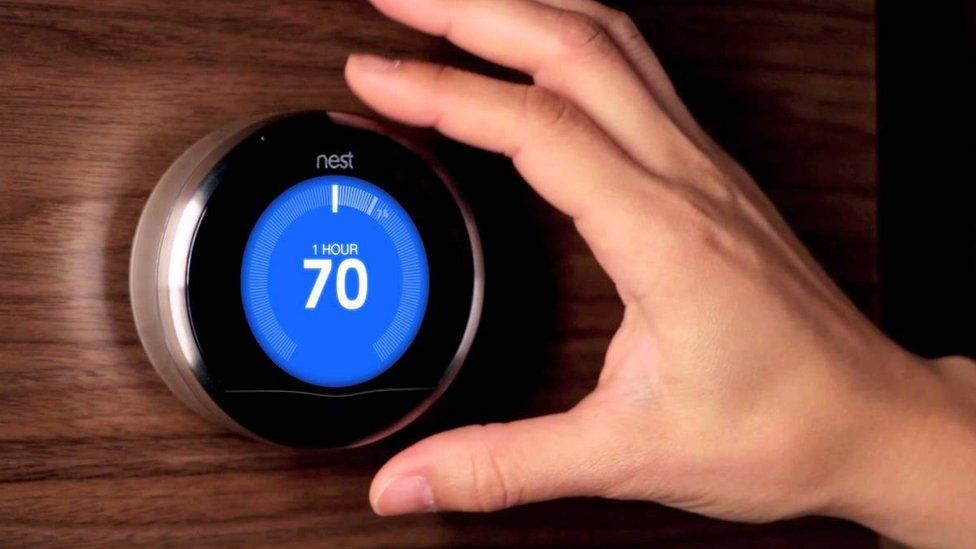Nest thermostat bug leaves users cold
- Published

A software update in December appears to be causing problems for the 'smart' thermostat
A software bug that caused Nest's smart thermostat to stop working has left many users both cold and angry.
Some of those affected took to Nest's own forum and social media to vent their anger about the problem.
Nest said that it was aware of the issue and that it had been fixed for "99.5%" of users.
It recommended that, for those still experiencing problems "performing a manual reset should help". It also published a nine-step fix, external.
"We are aware of a software bug impacting some Nest Thermostat owners. In some cases, this may cause the device to respond slowly or become unresponsive. We are working on a solution that we expect to roll out in the coming weeks," it said in a statement.
It did not say how many users had been affected.
Cold house
Many users were left with cold houses
The issue appears to have been traced to a software update in December - with problems not emerging until early January.
The bug drained the battery life of thermostats and deactivated the system.
"Product stopped working, cold house, cold feet," wrote one customer on Twitter.
Others reported that the thermostat was unexpectedly heating up their house.
News of the issue was first reported by the New York Times, external.
The £200 Nest thermostat has been designed to learn the right temperatures for a home at any given time, potentially saving money on heating bills. Nest also offers a smoke alarm and security camera to allow users to keep an eye on their home via a smartphone.
The firm was bought by Google for $3.2 bn (£2.2 bn) two years ago.
Security risk
Martin Usborne, a photographer from London, told the BBC he had experienced problems with his Nest thermostat earlier this month.
"It broke down twice. I got an error message saying it was not connected. The house was very cold and I had to reboot it," he said.
"I have a love/hate relationship with Nest. Since it was installed, the house is warmer but my heating bill has gone up by 60% so it doesn't seem to be doing its job in saving money," he added.
A spokesman for Nest said he could not comment on Mr Usborne's specific case without speaking to him directly.
Ovum analyst Rik Turner said that the issue was likely to be repeated in other smart devices.
"As we increasingly put distance between humans and their devices so we will increasingly become hostages to fortune," he said.
"In the past you might have been able to fix hardware or get a bloke round who could but now it requires a patch from the manufacturer."
The trend to connect more and more devices to the internet of things is gathering pace as the cost of connecting physical things to the network continues to fall.
Analyst firm Gartner predicts that 6.4 billion connected things will be in use in 2016 but it warns that the costs of making sure such systems were secure would also rise.
There have already been cases of hackers remotely taking control of internet-connected cars.
- Published17 June 2015
- Published24 July 2015